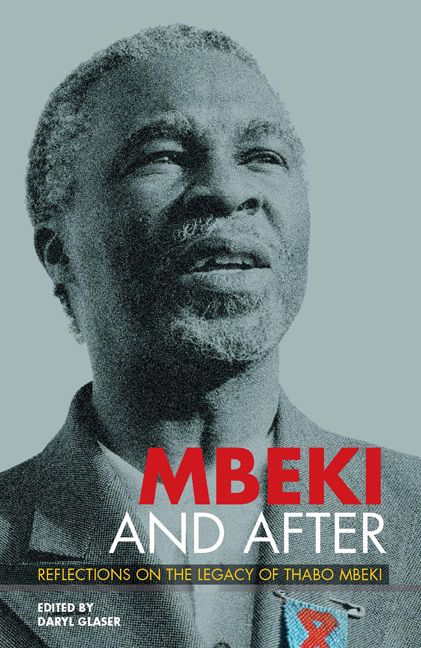9 - Thabo Mbeki's legacy of transformational Diplomacy
from Mbeki Abroad
Published online by Cambridge University Press: 21 April 2018
Summary
During the nine years of Thabo Mbeki's presidency – 1999 to 2008 – South Africa went from sitting in isolation on the bench during the apart - heid era, and searching for an identity and global role in the immediate post-apartheid period, to playing in the premier league of diplomacy and world affairs. Suddenly the country had a reach and impact on the global stage usually reserved for the great and powerful states.
Despite Mbeki's enforced resignation from the presidency in September 2009 his legacy of transformational diplomacy will endure for many decades and his politics and foreign policy of transformation, not just their intentions but also their outcomes, will be found to have left a discernible imprint on both the national and international landscape of South Africa. Whereas former President Nelson Mandela had stressed the importance of the politics of reconciliation Mbeki was committed to a determined project of transformation.
Transformation here is defined as a strategic, deliberate and determined drive to address the legacies of apartheid, white minority domination, colonial domination and imperialist exploitation. Mbeki's transformational national and international discourse borrows from transformation theory based on the assumption that the legacies of oppression, racism and underdevelopment can be overcome through an ‘emancipatory praxis’ (McDonald 1999).
In the context of a move from apartheid and white minority domination nationally and Western hegemony globally Mbeki's philosophy was destined to be contentious. Implementing policies of transformation in the most explicitly racist country, which dared to institutionalise racism through apartheid, while standing up to a bellicose American president who had no qualms about assigning countries to either side of his ‘axis of evil’ on a whim, ensured his terms of office would not be straightforward. His ambition to transform the country domestically while holding back American, British, French, and other Western neo-colonial ambitions, and simultaneously elevate Africa and the global South to the top of the Republic's diplomatic radar screen, threatened far too many entrenched interests for it to be welcomed by many elites. But Mbeki opted to take the flack, and to stand up to the vilification and blackmail, and moved on regardless.
- Type
- Chapter
- Information
- Mbeki and AfterReflections On The Legacy Of Thabo Mbeki, pp. 209 - 241Publisher: Wits University PressPrint publication year: 2009



